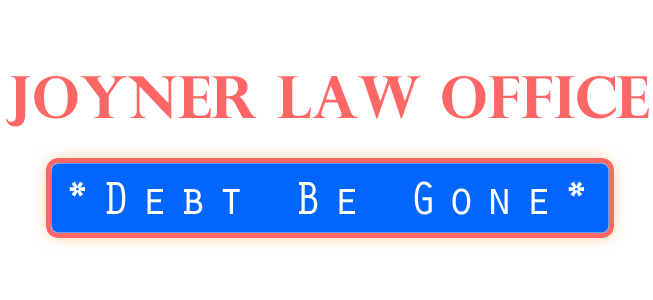Forced sales, also known as court-ordered sales or judicial sales, occur when a property is sold against the will of the owner to satisfy a debt or other legal obligation. While forced sales serve a purpose in certain circumstances, they can often have devastating consequences for the property owner.
There are a number of common reasons why forced sales may occur in Illinois, such as foreclosure or tax delinquency. We’ll explore the negative impacts they can have on families and communities. We’ll then explore various alternatives that can potentially help property owners avoid forced sales.
Loan Modification Programs
One alternative we examine is loan modification, which involves renegotiating the terms of a mortgage to make it more affordable for the homeowner. Loan modifications can include lowering the interest rate, extending the loan term, or reducing the principal balance. This can result in reduced monthly payments and make it easier for a homeowner to stay current on their mortgage.
Eligibility for loan modification programs varies, but often, homeowners who are facing financial hardship, such as job loss or medical expenses, may qualify. It's important to note that lenders have different criteria and application processes, so it's crucial to reach out to your mortgage servicer or consult with a legal professional to understand your options.
Forbearance Agreements
Another alternative to forced sales is entering into a forbearance agreement with the lender. This allows homeowners to temporarily suspend or reduce their mortgage payments for a specified period. Forbearance agreements are often used as a short-term solution for borrowers facing temporary financial hardship, such as a medical emergency or job loss.
During the forbearance period, homeowners can focus on stabilizing their finances without the immediate threat of foreclosure. However, it's important to understand that the missed payments will still need to be repaid in the future. Homeowners should carefully review the terms of the forbearance agreement to ensure they can fulfill the repayment requirements once the forbearance period ends.
Short Sales
In some cases, a short sale may be a viable alternative to a forced sale. A short sale occurs when the property is sold for less than the amount owed on the mortgage. This option can be beneficial for homeowners who are unable to afford their mortgage payments and owe more than the property's current market value.
With a short sale, the lender agrees to accept the proceeds from the sale as full satisfaction of the debt, thereby releasing the homeowner from further liability. While short sales can help homeowners avoid foreclosure and the negative consequences associated with it, they require the lender's approval and can be a complex process. It's advisable to work with a real estate agent or attorney experienced in short sales to navigate the intricacies.
Deed in Lieu of Foreclosure
Another alternative to forced sales is a deed in lieu of foreclosure. In this scenario, the homeowner voluntarily transfers ownership of the property to the lender to satisfy the debt. This option can be advantageous for both parties, as it allows the homeowner to avoid foreclosure and the associated legal costs, while the lender gains control of the property without going through a lengthy legal process.
However, it's important to consider that the lender may still require a financial contribution or pursue a deficiency judgment if the property's value does not cover the outstanding debt. Homeowners should carefully review the terms of the agreement and consult with legal professionals to fully understand the implications of a deed in lieu of foreclosure.
Mediation Programs
Lastly, mediation programs can provide an alternative avenue for homeowners to explore before resorting to a forced sale. Mediation involves a neutral third party facilitating negotiations between the homeowner and the lender to reach a mutually agreeable solution.
Mediation programs aim to prevent foreclosure and encourage open communication between the parties involved. The mediator can help explore options such as loan modifications, repayment plans, or other alternatives that may help the homeowner retain their property. These programs can vary in availability and eligibility requirements, so homeowners should research and inquire about the mediation options available in their jurisdiction.
Advantages and Disadvantages of Alternatives
While exploring alternatives to forced sales can provide potential relief for homeowners, it's essential to understand the advantages and disadvantages of each option.
Loan Modification Programs
Potential Pros: Loan modifications can result in lower monthly payments, making it more affordable for homeowners to stay current on their mortgage. They can also help homeowners avoid foreclosure and protect their credit scores.
Potential Cons: Loan modifications may extend the loan term, potentially increasing the amount of interest paid over time. Additionally, not all homeowners may qualify for loan modifications, and the application process can be complex.
Forbearance Agreements
Potential Pros: Forbearance agreements provide temporary relief from mortgage payments, allowing homeowners to stabilize their finances during times of hardship. They can help avoid immediate foreclosure and provide breathing room to explore other options.
Potential Cons: Missed payments during the forbearance period will need to be repaid, which can result in higher future payments. Homeowners should carefully review the terms to ensure they can fulfill the repayment requirements.
Short Sales
Potential Pros: Short sales can help homeowners avoid foreclosure and the negative consequences associated with it. They offer an opportunity to sell the property and potentially walk away from the mortgage debt.
Potential Cons: Short sales require lender approval and can be a lengthy and complex process. Homeowners may need to work with experienced professionals to navigate negotiations and paperwork.
Deed in Lieu of Foreclosure
Potential Pros: A deed in lieu of foreclosure allows homeowners to avoid the lengthy and costly foreclosure process. It provides a streamlined way to transfer ownership to the lender and potentially walk away from the debt.
Potential Cons: Homeowners may still be responsible for financial contributions or face the possibility of a deficiency judgment if the property value does not cover the outstanding debt. Consulting with legal professionals is crucial to fully understand the implications.
Mediation Programs
Potential Pros: Mediation programs encourage open communication and negotiation between homeowners and lenders. They provide an opportunity to explore various alternatives and potentially find a mutually agreeable solution.
Potential Cons: Mediation programs may not be available in all jurisdictions, and eligibility requirements can vary. Homeowners should research and inquire about the mediation options in their area.
Conclusion
Forced sales can have severe consequences for homeowners and communities alike. However, Illinois offers various alternatives that can potentially help property owners avoid such sales. From loan modifications and forbearance agreements to short sales, deed in lieu of foreclosure, and mediation programs, homeowners have options to explore. Understanding the advantages and disadvantages of each alternative, as well as seeking professional advice, can empower homeowners to make informed decisions about their financial future.

